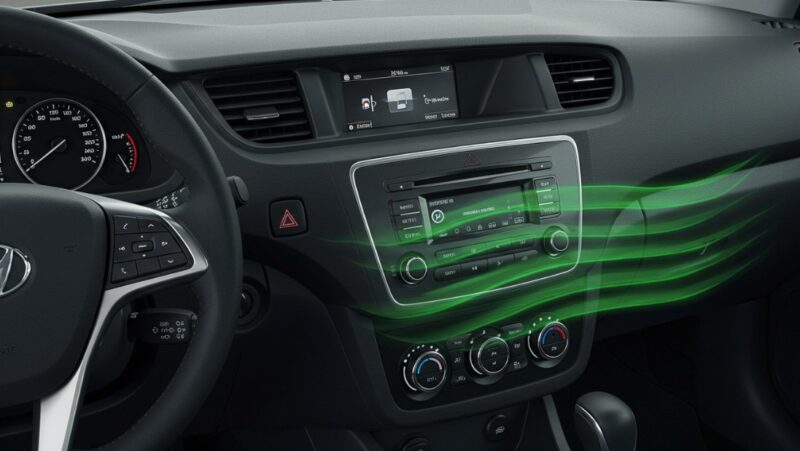
Share Post:
I recall a day when I hopped into my car, only to be greeted by an unmistakable whiff of fuel. It threw me off. My thoughts raced to flammability concerns and potential health hazards.
I felt uneasy driving around with that lingering odor in the air, so I decided I had to figure out the root cause. Over time, I gathered bits of knowledge that eventually helped me pinpoint issues and find fixes.
I’d like to share those insights so anyone dealing with a gasoline smell can figure out the next steps without feeling too overwhelmed. Let’s get started.
Table of Contents
Toggle1. The Whiff Right After Filling Up

I’ve noticed that catching a gasoline smell immediately after stopping at the pump is quite common. My first encounter with that odor happened when I got a bit careless and spilled some gas on my hands and shoes.
A strong smell clung to my clothes for what felt like hours, and the lingering fumes became a driving distraction. Below are a few reasons that might explain why the smell appears right after fueling:
- Fuel Vapors: Gasoline has no problem evaporating, and the process can occur quickly. When I refuel, a few stray vapors sometimes escape, filling the air with that distinct smell.
- Spillage: A small splash here and there—on my hands, shoes, or the side of the car—can latch onto surfaces and leave an odor that sticks around longer than expected.
- Loose or Missing Gas Cap: I’m typically a bit paranoid about tightening my gas cap, mostly because I read about the importance of a proper seal. A loose or missing cap invites vapors to slip out, which can lead to that annoying smell.
What I Do To Fix It
- Check the Gas Cap: After refueling, I give the cap a firm twist. A quick glance for damages never hurts either.
- Wipe Away Spills: Any puddle on the car’s exterior gets wiped off with a clean rag or paper towel. That small step often saves me hours of aggravation later.
- Replace a Faulty Cap: Cracks, broken threads, or worn-out gaskets mean it’s time for a new cap. A replacement ensures a tight seal and blocks vapors from leaking out.
2. Fuel System Leaks
@calebeckenrode I forgot to tighten my fuel line fittings… #cars #focusrs ♬ Odium – LXST CXNTURY
Leaks involving gasoline feel especially unsettling. I once noticed puddles forming under my car, and it freaked me out because fuel puddles can be a real threat. Fuel system leaks can come from various places:
- Fuel Injectors: Worn or cracked seals on injectors can let out droplets of fuel that produce a noticeable smell.
- Fuel Lines and Hoses: Age and wear can corrode or crack lines and hoses. I’ve discovered that older cars, in particular, are quite vulnerable to that kind of deterioration.
- Fuel Tank: Sometimes rust or physical damage creates tiny holes. Leaks from the tank itself are a big issue that demands a speedy fix.
My Experience
One weekend, I spotted a shiny liquid dripping from beneath the middle of my old sedan. The smell was unmistakable. Nervously, I avoided starting the car and called a mechanic friend.
He confirmed a slight fracture in the tank. I had to get a replacement before I felt safe behind the wheel again.
Steps to Take
- Immediate Mechanic Visit: Fuel leaks must be addressed right away. Call a professional, or drive to the shop if it’s safe, but do not ignore the smell or any puddles.
- Prioritize Safety: Open flames or cigarettes near a leaking car is a recipe for disaster. Keep that in mind while waiting for repairs.
3. EVAP System Glitches
A vehicle’s EVAP system collects and repurposes fuel vapors, preventing them from floating into the air. I once experienced a malfunction in my car’s EVAP system that confused me for a bit.
The smell would appear, then disappear, and I couldn’t figure out the culprit for a few weeks. A diagnostic test ultimately pinpointed an issue in a valve that wasn’t sealing properly.
Potential Trouble Spots
- Charcoal Canister: Damage or leaks in the canister allow vapors to escape.
- Defective Valves or Hoses: If any part of the system malfunctions, vapors can slip out unnoticed.
Suggested Remedies
- Get a Diagnostic Check: I found it incredibly helpful to take my car to a mechanic who ran a smoke test. That test located the tiny gap in the system.
- Part Replacement: Replacing the faulty piece—be it a valve or canister—usually solves the odor issue and keeps emissions in check.
4. Engine Running Rich
When more fuel than needed enters the combustion chamber, the engine runs “rich.” My old SUV sometimes had a strong gas odor around the exhaust pipe. Turned out the air-fuel ratio was not balanced.
Signs and Clues
- Gas Smell from Exhaust: The strong odor hits the nose right away. It’s quite obvious and tough to ignore.
- Fuel-Contaminated Oil: Extra fuel can seep into the oil. My dipstick once had a faint gasoline aroma that signaled a richness issue.
What Helped Me
- Professional Inspection: A mechanic adjusted the sensors to fix the air-fuel balance.
- Regular Maintenance: Spot checks, along with routine tune-ups, help prevent future rich-running episodes.
5. Troubles with the Fuel Pressure Regulator
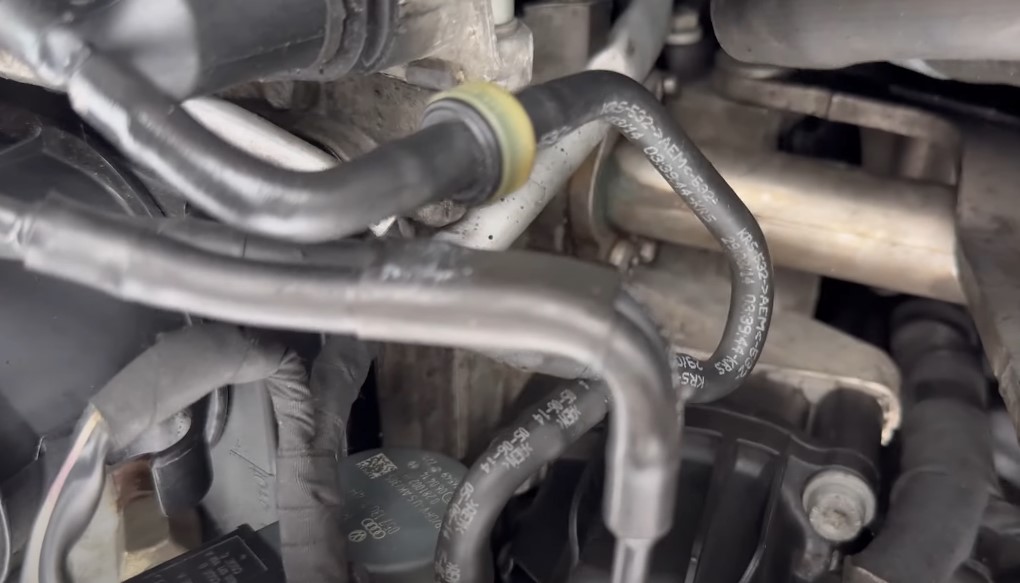
The pressure regulator keeps the fuel system running at a stable level. A poorly functioning regulator can mess with that balance, leading to strong odors and performance hiccups.
Possible Symptoms
- Fuel Leaks: Excess pressure can push fuel past seals.
- Rich Mixture: Too much fuel in the mix can create that telltale gas smell.
My Solution
- Inspection by a Specialist: My experience taught me that ignoring a failing regulator spells trouble. I got mine replaced once, and it solved the odor problem practically overnight.
6. Exhaust System Leaks
Exhaust fumes shouldn’t creep into the cabin, but they will if there’s a crack or gap. I noticed an odd smell leaking in through the vents on an older vehicle I used to own. That triggered a thorough check under the car.
- Manifold Leaks Any crack or missing piece in the manifold can release unburned fuel.
- Damaged Gaskets Even tiny gaps in gaskets can allow fumes to waft into the cabin.
Recommended Fixes
- Detailed Inspection An exhaust shop can locate cracks or compromised sections.
- Gasket Replacement Replacing worn gaskets sealed my system well enough to get rid of the gasoline smell for good.
7. Worn or Damaged Fuel Filter
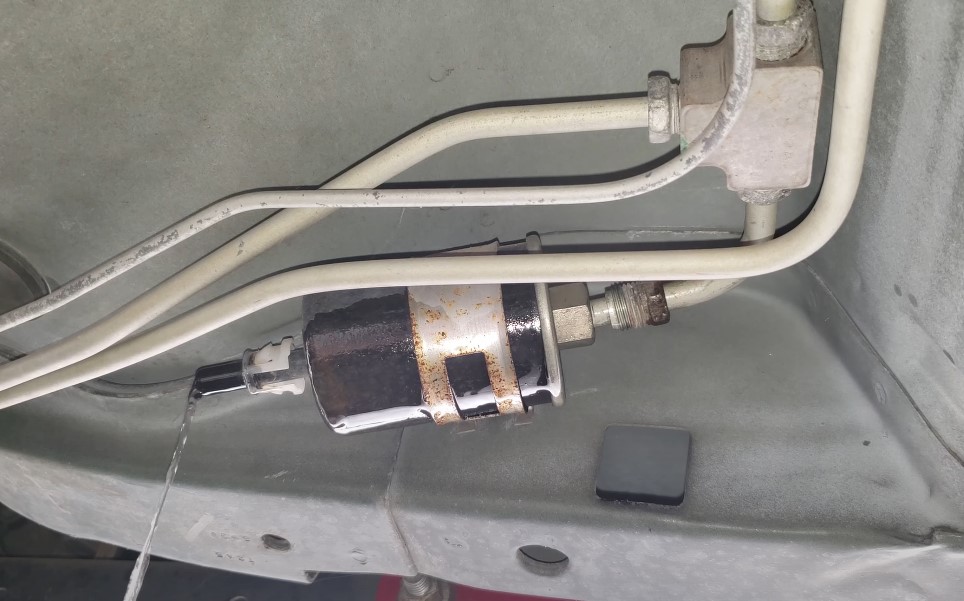
I used to ignore my fuel filter longer than I should have, thinking it wasn’t a top priority. Over time, filters age or experience cracks, allowing slight seepage.
That seepage leaves a persistent gas smell around the back of the car or under the hood.
Steps I Took
- Routine Replacement: A new filter every so often keeps the system healthy. Check the vehicle’s manual for recommended intervals.
- Inspections for Leaks: Observing the filter and its connections to detect stains or damp spots helps catch problems early.
8. Faulty Spark Plugs or Ignition Coils
Spark plugs and coils ignite the fuel. If those parts fail, some fuel remains unburned, leading to a gasoline smell.
My car once sputtered on cold mornings, and the smell from the tailpipe felt especially strong.
What to Watch Out For
- Gas Odor around the Engine Bay: When the spark is weak, leftover fuel can linger near the block.
- Reduced Efficiency: Extra fuel consumption often goes hand in hand with a faulty ignition.
My Quick Fix
- Replace Worn Plugs: I opt for recommended spark plugs that fit my model.
- Check Coils: If spark plugs alone don’t solve it, coils might also need attention.
9. Aging Fuel Tank Vent
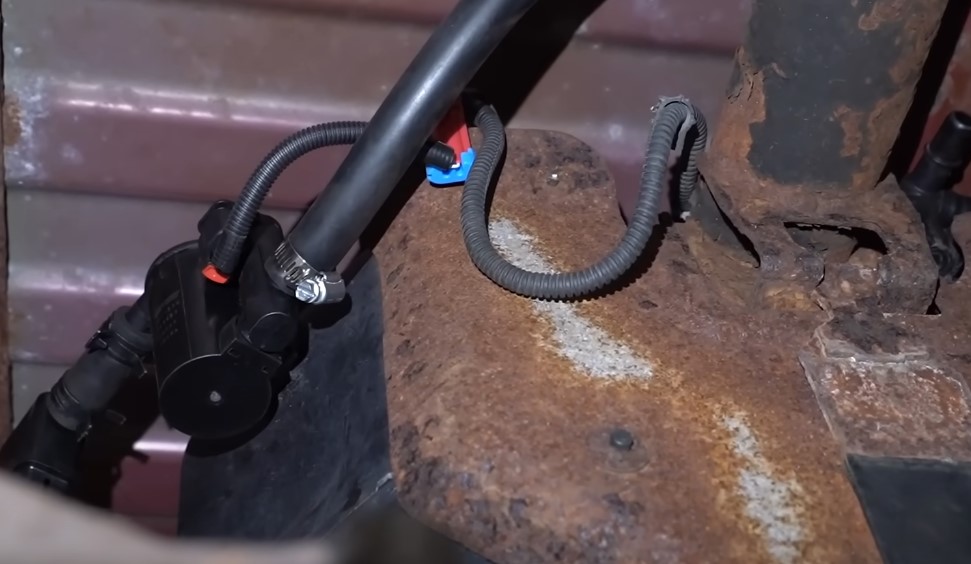
Fuel tanks aren’t sealed airtight. There’s a vent to balance pressure. On certain older cars, vent lines clog or break, allowing vapor leaks.
That can create a fuel odor in the vicinity of the rear fender. I remember a friend’s ancient station wagon that stank of gas for months. Turns out, the vent was nearly rusted through.
How to Resolve
- Inspect the Vent Hose: A professional can locate and check the vent line for clogs or wear.
- Replace Damaged Parts: A fresh vent assembly can eliminate the smell and improve overall fuel system function.
10. Oil Contamination with Fuel
Gas can mix with engine oil under certain circumstances. Short trips that don’t warm up the engine fully can leave unburned fuel in the cylinders, which eventually drains into the oil.
Worn piston rings also cause leaks. On one of my older engines, I detected a faint gasoline odor on the dipstick.
Consequences
- Reduced Lubrication: Fuel in the oil dilutes it, diminishing its protective properties.
- Potential Engine Damage: Metal parts can wear faster if oil loses its ability to protect.
My Method of Prevention
- Regular Oil Changes: I keep a strict schedule to ensure fresh oil.
- Longer Trips: Occasionally, I allow the engine to reach operating temperature, burning off leftover fuel.
11. Leaks in the Fuel Pump or Sending Unit
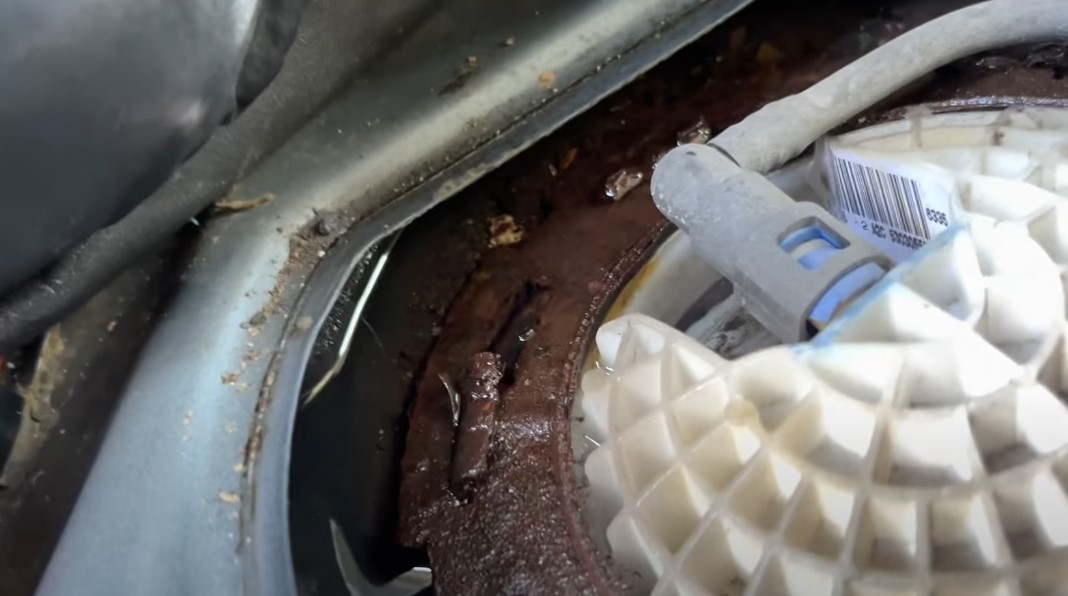
Fuel pumps, particularly older ones, may start leaking from gaskets or connections. In my case, I spotted a drip around the top of the tank.
Over time, components like O-rings can degrade, increasing the chance of leaks.
Recommended Actions
- Visual Inspection: Look for droplets or damp areas around the pump location.
- Replacement or Repair: A new pump or sending unit often fixes leaks. I found it worthwhile to replace the entire assembly rather than attempt a patch job.
12. Interior Fuel Smells
Occasionally, gasoline odors invade the passenger space. I still remember a particularly hot afternoon when I left a small gas can in the trunk, and the smell quickly spread. Below are a few factors:
- Spilled Fuel Containers: Even sealed containers might vent vapors if left in direct sunlight.
- Ventilation System Issues: The cabin air filter might be saturated, allowing fumes in.
- Seals Around Doors or Windows: Gaps in the weatherstripping can let outside smells seep inside.
Quick Solutions
- Remove Fuel Containers: I store fuel or lawnmower gasoline in a well-ventilated shed now. It’s safer and keeps my car odor-free.
- Change Cabin Air Filter: A fresh filter often improves interior air quality.
- Check Seals: Replacing cracked or worn weatherstripping helps keep fumes out.
13. Aftermarket Modifications Gone Wrong
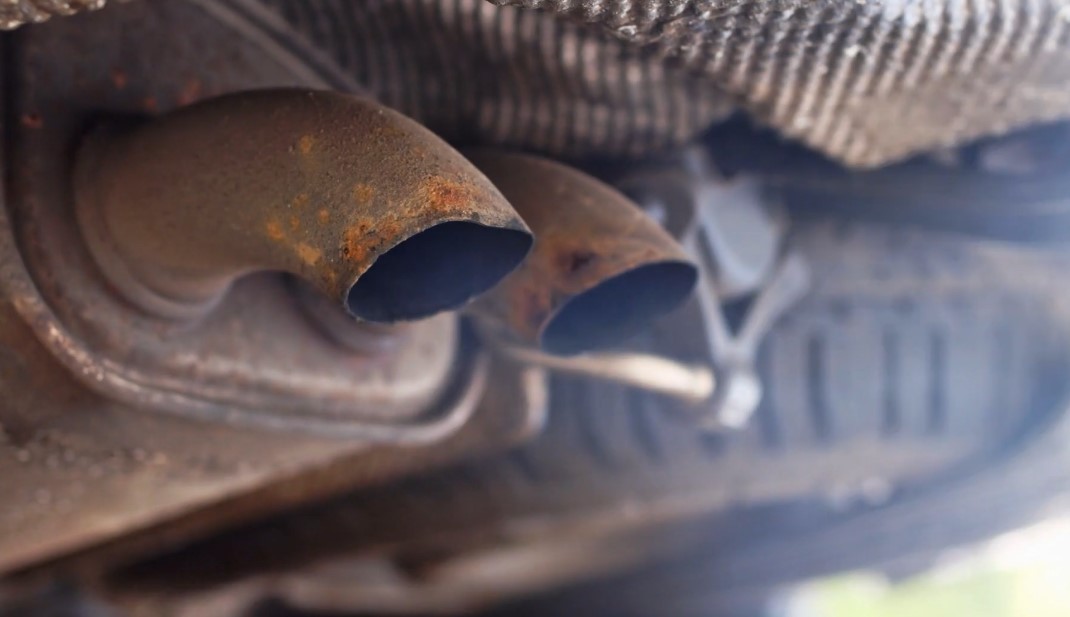
Tinkering with a car can be exciting, but it’s easy to install parts incorrectly. I’ve learned (sometimes the hard way) that custom setups might not always align perfectly with factory specs. That can lead to:
- Leaky Fittings: Improperly seated lines or adapters cause drips.
- Miscalibrated Fuel Delivery: Bigger injectors or custom tunes might cause a rich air-fuel ratio.
Advice Based on Experience
- Seek Professional Installation: Unless I’m fully confident in my skills, I let an expert handle major fuel or exhaust mods.
- Return to OEM: If an issue persists, reverting to stock parts might restore balance.
Precautions I Swear By
- Never Smoke Near a Gas Smell: Vapors are extremely flammable, and even a small spark can be enough to ignite trouble.
- Ventilate the Cabin: If the odor is stuck inside, windows and doors should be opened in a safe place to let fresh air circulate.
- Immediate Inspection: A persistent smell warrants a trip to a qualified mechanic sooner rather than later.
Preventive Measures for Peace of Mind
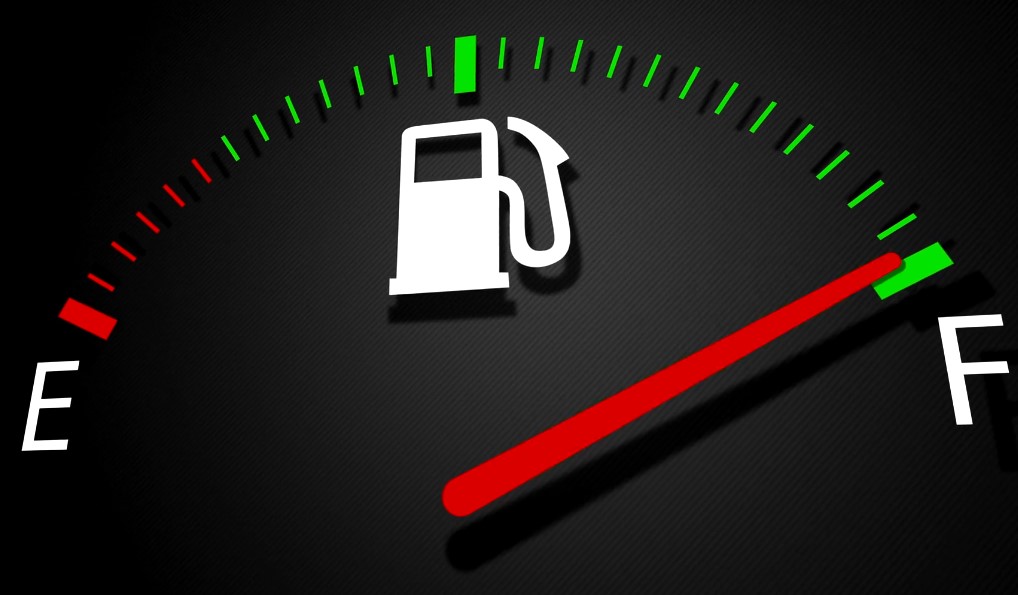
1. Keep Up with Maintenance
Regular maintenance is worth every penny. Checking fuel lines, hoses, filters, and ignition parts has helped me catch minor issues before they turned into major ones.
2. Monitor Fuel Economy
Noticing a dip in miles per gallon often hints at a fuel system problem. I’ve started tracking my fuel economy using a simple notebook.
If the number drops unexpectedly, I investigate spark plugs, injectors, or potential leaks.
3. Heed Warning Lights
A check-engine light can signal emission-related faults, including EVAP leaks or a failing oxygen sensor. Putting off a diagnostic scan can create bigger issues down the road.
I learned that the hard way once, ending up with a more expensive repair due to delayed action.
4. Safe Storage
Carrying gasoline or other flammable liquids inside the passenger area is something I avoid. If transport is necessary, a sealed container in the trunk is better, but leaving it for long periods still poses risks.
I prefer not to drive around with any combustible substance unless it’s absolutely necessary.
Summary
I’ve come to realize that an odd gasoline smell isn’t something to brush off. There’s a real safety concern at play, and it can also suggest underlying mechanical faults.
Fixing the issue promptly provides peace of mind and protects you, your passengers, and your vehicle from greater harm.
From my experience, checking for leaks, ensuring the fuel system works properly, and adopting simple maintenance habits goes a long way toward keeping that potent odor away.
May your drives be free of pungent fumes—and may you feel safe every time you turn the key.
Related Posts:
- Why Does My Car Squeak When Turning? Common Causes…
- What Causes the Rotten Egg Smell in Your Car?
- White Smoke Coming from Your Car's Exhaust? Causes…
- Coolant Leak from the Bottom of the Car - Causes and…
- Subaru CarPlay Not Working: 5 Common Reasons & Solutions
- How Much Does the Average Person Spend on Gas a…









